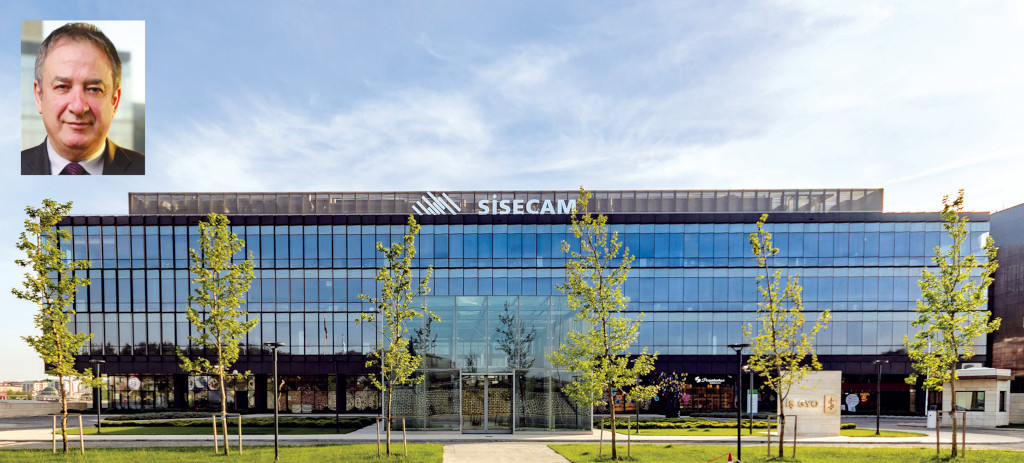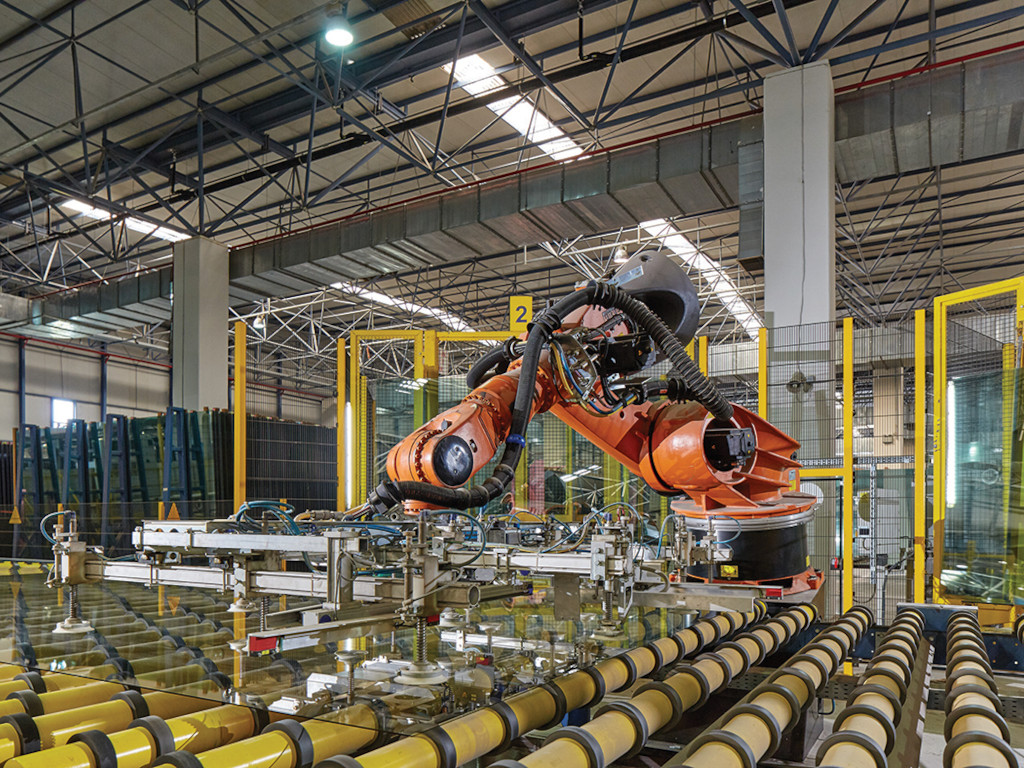GW: A great deal has changed, both economically and socially, since your last conversation with Glass Worldwide in 2019. What has been the impact of Covid-19 on the group’s ability to satisfy customer demand, while assuring the health and wellbeing of personnel?
The Covid-19 outbreak, which first emerged in Asia and had spread globally as of the first months of 2020, had significant and broad effects not only on businesses, but also on societies, social life, people and economies. Although the Covid-19 pandemic has resulted in unprecedented changes in our lives and the economies, navigating through uncertainties with a dynamic approach to crisis management and the ability to quickly adapt to changing conditions, Şişecam has continued to create value in the extraordinary atmosphere of the pandemic since March 2020.
Şişecam cares for people and adopts the philosophy of ‘people first’ in all of its operations. In every country where it operates, Şişecam quickly implemented and followed all applicable rules, restrictions and guidelines set by public health and government authorities in response to the coronavirus pandemic. Ensuring the health and safety of our 22,000 employees located in 14 countries has always been a top priority of our business strategy. Şişecam follows the highest standards in occupational health and safety across its entire global organisation.
Even prior to WHO’s official declaration of the pandemic, we had already started taking a wide range of measures related to hygiene, disinfecting, travel, protection of employees’ health and business continuity. We implement the preventative measures announced by the World Health Organisation and official institutions of countries where we operate at all our workplaces, alongside our Pandemic Action Plan. As we operate in 14 countries with continuous production in manufacturing facilities, we adjusted our people planning in line with the local authority practices. Our staff at headquarters and sales offices in all countries shifted to hybrid working.
We established crisis committees in conjunction with our Occupational Health and Safety teams, workplace physicians and HR teams to ensure that the precautionary measures taken at the workplaces are followed. We launched a Covid-19 Communication Committee Support Line so that employees could share their questions and any concerns with HR management teams. In addition, the Covid-19 Communication Committee ensured the uniformity of the anti-pandemic measures taken across all the workplaces and closely monitored the number of coronavirus cases. We issued Case Management and Communication Guides for managers and HR teams.
As a company which delivers global solutions with its value added products and provides world-class main input to over 100 industries, we have also demonstrated great agility in taking wide range of measures to ensure business continuity. Since our current business lines require uninterrupted production, Şişecam quickly adapted its production plans and business processes by considering emerging developments in its target markets and geographies. We closely monitored global events and market dynamics related to our business lines with robust crisis management practices. As a result, Şişecam successfully continued its production operations without any interruptions through efforts on optimisation and operational excellence.
As we are keenly aware that corporate success cannot be achieved without successful ecosystems, with this perspective, we have been promptly and effectively taking all necessary measures to protect our stakeholders. Despite the challenging environment brought by the global pandemic, Şişecam supports its key suppliers and customers with ecosystem financing solutions in order to protect all the parties in value chain of business and as well as its stakeholders. By ensuring that its stakeholders are not harmed by the uncertainty and challenging market conditions, Şişecam safeguards value creation.
We also ensured operational sustainability by performing exceptional demand/production planning to support our supply system. We have achieved a remarkably balanced corporate structure thanks to market diversification across our business lines. This competitive advantage, coupled with effective management of production and operating costs, helped to keep Şişecam’s operations intact despite the pandemic. For the foreseeable future, we will maintain our cautious approach while planning carefully and prudently for the period ahead.
GW: Bearing in mind the diversity of countries in which you operate, has it been possible to adopt the same processes consistently or a more flexible approach from one country to the next?
Şişecam is a global player in business lines including flat glass, auto glass, glassware, glass packaging and glass fibre as well as soda and chromium chemicals. Having production operations in Turkey, Germany, Italy, Bulgaria, Romania, Slovakia, Hungary, Bosnia-Herzegovina, the Russian Federation, Georgia, Ukraine, Egypt, India and the US, Şişecam plays a leading role in flat glass, glassware, glass packaging, chemicals, automotive glass, glass fibre, mining, energy and recycling business lines. As a company of international scale with more than 85 years of experience, 22,000 employees, production activities spanning 14 countries in four continents, and sales in over 150 countries, Şişecam continues on its journey to become one of the top three global producers in its main business lines.
As part of our responsibility to protect our employees, business partners and customers, we took all necessary measures to safeguard their health without interrupting our production operations and services that are required to meet the basic needs of our communities. Since the Covid-19 is an ongoing pandemic, Şişecam continues to review evolving guidance from public health, government and scientific authorities of the countries where it operates. Based on findings and analysis, Şişecam modifies its measures for each stage of the struggle against the pandemic, such as periods of tighter restrictions and staggered normalisation. We actively promote these precautionary and protective measures in the regions where we operate with a specified approach for each and every country.
We prioritised protecting the employment of our staff as well as their health and well-being and proactively took measures required to ensure business continuity in all Şişecam facilities. We adopt all kinds of occupational health and safety measures for our employees who needed to continue their jobs on-site. We proactively replan the number of employees at our plants in a manner that does not affect production operations while safeguarding employee health. Our staff at headquarters and sales offices in all countries shifted to remote working. We distributed personal protective equipment (PPE) to our employees and suppliers, took several additional measures including disinfecting work areas, reorganising shared spaces and capacity of personnel shuttles, performing general medical screenings and ensuring a socially-increased-distanced working environment. We delivered online training to our employees on remote working and anxiety-stress management.



